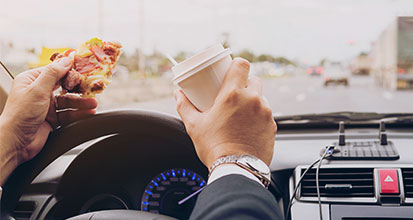How Criminal Defence Lawyers Deal with Hate Crimes
A criminal defence lawyer is well-versed in the laws that govern racial abuse in Australia. These laws cover public behaviour and do not look at personal beliefs.
In modern society, it is easy for people to voice their opinions through platforms with greater reach. And while freedom of speech is a right, you cannot exercise it at the expense of other people.
The line that divides freedom of speech from hate speech often gets blurred, and serious sanctions will follow if you find yourself on the wrong side of the law. Criminal defence lawyers have the expertise to navigate this area of the law.
Laws in Place
In Victoria, it is unlawful to vilify someone or a group of people in public based on their race or religion. Vilification is behaving in a way that stirs up hatred or mocks a person or group based on those attributes.
In public, it is also illegal to act in a manner that is racially derogatory or abusive to people due to their race, nationality, or ethnicity.
Racial and Religious Vilification
Racial and religious vilification is regulated by the Racial and Religious Tolerance Act 2001.
Racial and religious vilification involves the following:
- Spreading racist comments in print, on the web, and on social media.
- Speaking at a gathering or at a public rally in a manner that incites hatred against certain races or religions.
- Creating or displaying racist graffiti, posters, or stickers.
Under the Racial Discrimination Act 1975, it is against the law to behave in public in a way that is:
- Based on the race, colour, nationality, or ethnicity of someone; and
- Will probably offend, insult or degrade that person or group.
A public place includes any place where the public can enter, such as the following:
- Shops.
- Roads.
- Places of Employment.
- Public transport.
- Sports facilities.
This also applies to public communication, such as newspapers, leaflets or brochures, TV and radio stations, or the internet.
Exemptions
Some acts are exempted if done ‘reasonably and in good faith’.
The following are exceptions:
- An artistic creation or performance.
- A publication, conversation or debate on a matter regarded as being in the public's interest.
- A fair and true report on an issue of public interest.
- A fair remark on an event or matter of public interest if that remark expresses someone’s genuine belief.
A good lawyer understands that these exceptions are in place to protect the rights to freedom of speech and expression and will know when they apply.
Racial Motivation adds to the severity of the crime
Prejudice is an aggravating factor and can occur as part of any criminal act. It makes crimes works because racial prejudice affects the whole community and not just that specific victim alone.
Victoria law enforcement does not take racially motivated hate crimes lightly. Engaging a lawyer knowledgeable in this field is still a good idea to ensure the protection of rights.
Conclusion
The law cannot change your personal views and opinions, but it has been created to protect people from racially hateful acts or language.
Discrimination law can be complicated or confusing. If you want to understand your rights, defences, and legal position, you can contact us for legal guidance. If you are a victim of a hate crime, you can also seek legal advice on the way forward.
In an opinionated and progressive world, seeking legal advice on contentious issues is always in your best interest, or you may land yourself in hot water.
Sources
https://www.legalaid.vic.gov.au/racial-vilification-and-acts-racial-hatred


